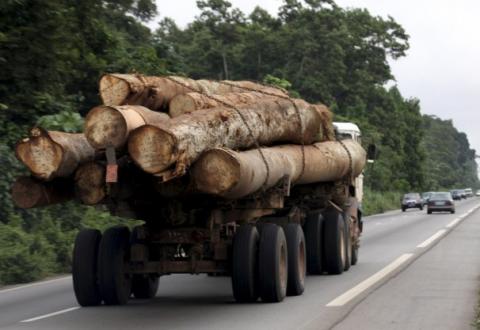Le président gabonais Ali Bongo Ondimba a déclaré vendredi que son pays avait décidé de ne plus exporter ses matières premières sans une première transformation locale, à l’occasion de l’inauguration d’un complexe industriel de transformation de manganèse.
“A partir de 2020, nous n’exporterons plus rien qui ne subisse au préalable une première transformation locale”, a déclaré M. Bongo Omdimba dans son discours à Moanda, petite cité minière située à environ 700 km dans le sud-est du Gabon.
“Si nous avons réussi à faire cette transformation en ce qui concerne le minerai de manganèse, nous pouvons le faire aussi dans d’autres secteurs”, a-t-il fait remarquer.
“Après plus de 50 ans d’exploitation et d’exportation de minerai brut, il était temps pour nous de passer à une seconde étape”, a-t-il insisté. Le Gabon exploite le manganèse depuis 1962 sans une réelle volonté de transformer localement cette ressource.
“La transformation locale nous apporte plus de valeur ajouté”, a-t-il dit en précisant que la chute des cours des matières premières actuelles permet au Gabon de récupérer quelques avantages liés à la transformation locale de ces matières.
Le chef de l’Etat gabonais a aussi insisté sur la création locale des emplois. “Ces emplois n’existaient pas localement. Ils existaient ailleurs puisque ce type d’usine n’existait pas chez nous”.
“De la première transformation, nous nous acheminerons vers d’autres et c’est une voie qui amènera notre économie à être plus performante”, a-t-il espéré.
Un pays du golfe de Guinée avec une population de 1,8 million d’habitants, le Gabon exporte principalement le pétrole, le bois et le manganèse.
Le pays a cessé d’exporter le bois brut depuis 2010. Selon le président gabonais, cette décision a propulsé le nombre d’emplois dans le secteur de la transformation du bois de 3812 travailleurs en 2009 à 6 985 en 2014.
De même, le nombre d’unités de transformation de bois est passé de 81 en 2009 à 130 en 2014.












